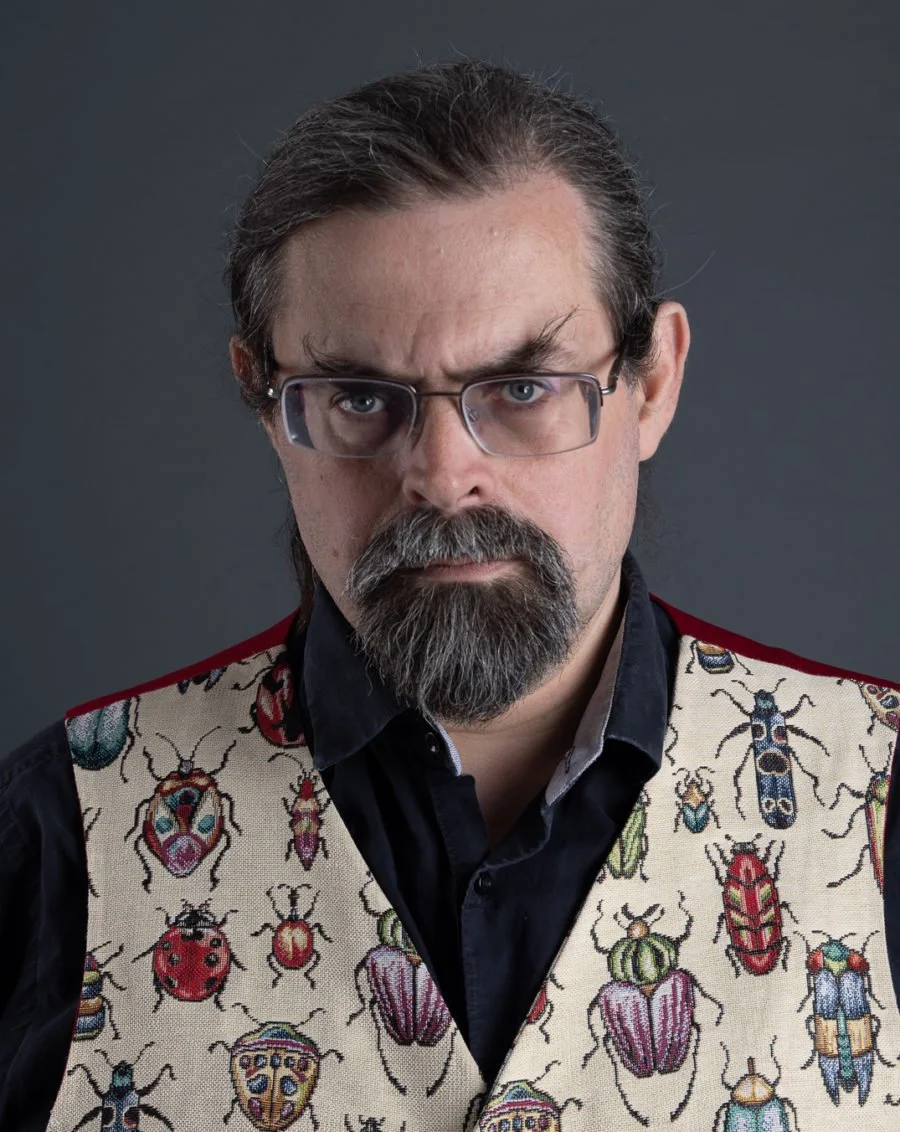Interviewing Adrian Tchaikovsky
Hellooo!
This week I’ve really enjoyed reading And Put Away Childish Things by Adrian Tchaikovsky the last in the thematically linked Terrible Worlds: Destinations trilogy that covers Walking to Aldebaran and One Day All This Will Be Yours. Visiting outer space; time travel at the end of all things and now a magical world that can be linked sometimes via a wardrobe. These highly enjoyable and intelligent tales. Adrian is also going to be rather busy as you will see next month. I was very lucky to get a little bit of time to talk about the new novella and what this tale explores.
How do you like to booktempt people with And Put Away Childish Things?
AT: So a lot of my concepts are weird, and have a kind of curve you have to get over, to explain to people why this is fun. The spiders in space one especially! Childish Things kind of sells itself though. So there’s a lovely portal world just set up to be saved by a valiant child hero. Except the child doesn’t go there, and instead goes off and becomes a rather unhappy middle aged man. And then the fantasy world, now decidedly decayed, comes and gets him, because it’s fed up with waiting. Weirdly it seems to be one of my concepts that immediately resonates with people. I guess I should thank Lewis for paying the groundwork.
What drew you towards using a portal fantasy world? What did you want to do differently with them?
AT: It’s something I’ve played about with before in short stories (There’s a short but rather snazzy one in Fox Spirit’s Winter’s Tales for example). I think it’s just such a staple of genre fantasy that I was always going to have a crack at twisting it to fit my crooked imagination.
You’ve created a secret history underneath this novel referencing real-life characters such as Alastair Crowley and CS Lewis. How did they enter the story?
AT: I usually try not to write in the modern day real world, because it means a lot of research, but for a portal fantasy story to have full impact, you sort of have to. Which, taken to its logical conclusion, means the concept of a portal fantasy exists in your portal fantasy. Lewis wrote his books, and this book’s hero is constantly having to disambiguate the Underhill books from them. And because there’s also a sort of wider occult community, then you have real historical figures coming into the story like Crowley, or Dr Dee.
This novel also revisits the UK in 2020 and our lead character’s surprise arriving in lockdown Britain. What made you link this to the story?
AT: Well… I was living it, at the time of writing. And also, it’s something that a lot of writers whose story was set in the real world had to wrestle with. What the F do you do about the pandemic? Never mention it, and thus create a kind of parallel history? Set everything in early 2019? Or push into the future and hope nothing bad happens that would also be conspicuous in its absence (like, say, a European war, or just the pandemic or lockdowns continuing). So, faced with that quandary, the most elegant solution seemed to be to work the weirdness and alienation of lockdown into the story as a feature.
This concludes the Terrible Worlds: Destinations trilogy of novellas. Has writing this given you a different appreciation as to how SF&F uses the concept of alternate worlds? What for you is the big attraction of them?
AT: The destinations trio (Walking To Aldebaran, One Day All This Will Be Yours, And Put Away Childish Things) were an interesting set to write. Three novellas, three very different settings, but united in that they’re writing about being alone (or worse, not alone) in very isolated and strange places (space, time and reality as the three different axis). And even with Things it’s not really alternate worlds (look to my Doors of Eden for that!). All three books are more to do with an inner journey being mirrored in the character’s surroundings. Gary Rendell, Harry Bodie and the unnamed narrator of One Day all go on a journey that’s far more about them being acted on and changed by their surroundings.
What else can we look forward to from you in the future for both US and UK audiences? Where can we find out more?
AT: As for finding out more, my website at adriantchaikovsky.com generally has major news on it. This year we’re looking at the last Architects book, Lords of Uncreation, coming out in May, and I think at the same time the US gets City of Last Chances (maybe?), at least in some formats. Right now it’s also looking as though, crossed fingers, there might be a second book in that series too, right at the end of ’23, assuming everything can get into gear quick enough. That’s one I had enormous fun writing, and it should work as a standalone in the same setting. For 2024 there will be a new standalone SF novel about weird alien ecology, the start of a new set of novellas (Terrible Worlds : Transformations) and a book from tordotcom about robots, and possible more!
What great books have you read recently?
I’ve just finished an advance copy of Premee Mohammed’s No One Will Come Back For Us, which is an incredibly atmospheric set of creepy stories in the cosmic horror vein, really excellent stuff. Andrew Knighton’s Ashes of Our Ancestors was a really interesting fantasy novella that explored some territory that fantasy doesn’t normally touch. And I’m still thinking of RF Kuang’s Babel, which was an incredible read.
